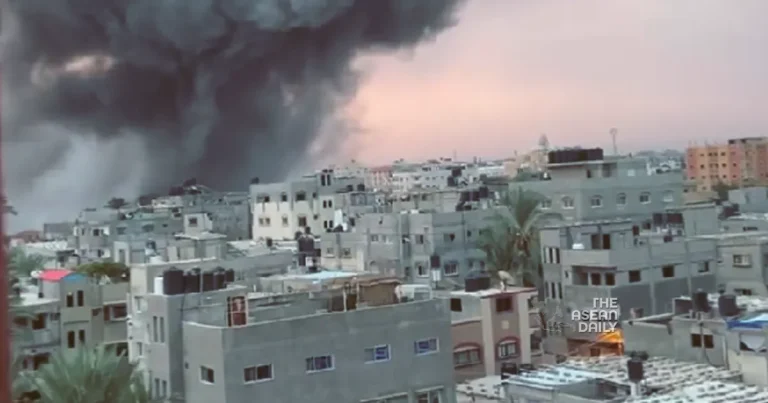10-10-2023 (GAZA) The United Nations Office for the Coordination of Humanitarian Affairs (OCHA) reported that more than 123,000 individuals in Gaza have been internally displaced as a consequence of the ongoing Israeli attacks. Israeli airstrikes and shelling have targeted residential buildings, resulting in the destruction of four major residential towers in Gaza City. Tragically, six healthcare workers have lost their lives, and four others have sustained injuries. Additionally, seven healthcare facilities and nine ambulances have been damaged.
The destruction has also severely impacted water, sanitation, and hygiene facilities, causing disruptions to services for over 400,000 people in Gaza. The Gaza Power Plant now stands as the sole source of electricity and is at risk of running out of fuel within days, a situation that raises alarm.
The UN Agency for Palestine Refugees (UNRWA) estimates that more than half of the displaced individuals have sought refuge in numerous schools. UNRWA has designated these schools as emergency shelters to provide essential aid and support.
Urgent cash assistance is necessary for both displaced individuals and host communities in Gaza. Humanitarian partners are actively working to provide dignity kits and psychosocial support to affected families.
The World Food Programme (WFP) has initiated the distribution of food to accommodate up to 100,000 internally displaced people in Gaza who are taking shelter in UNRWA facilities. This includes provisions such as fresh bread and canned food, as noted by Stephane Dujarric, spokesman for UN Secretary-General Antonio Guterres.
The WFP intends to expand its assistance in the coming days, aiming to provide food and cash assistance to up to 800,000 people as the situation evolves, contingent on the availability of necessary funding. Dujarric emphasized that $16.8 million is required to reach 805,000 individuals within the next month. It’s important to note that the supplies are not limitless, and unless additional resources are secured, the UN may run out of provisions in the near future.
On Monday, Secretary-General Guterres expressed deep concern about Israel’s declaration of a complete siege on the Gaza Strip, forbidding the entry of essential supplies, including electricity, food, and fuel. The humanitarian situation in Gaza was already dire, and the recent escalation of violence over the weekend will only exacerbate it significantly, he warned.
The urgent need for medical equipment, food, fuel, and other humanitarian supplies, as well as access for humanitarian personnel, cannot be overstated. Relief efforts and the import of essential supplies into Gaza must be facilitated. Guterres appealed to all sides and relevant parties to grant the United Nations access to deliver vital humanitarian aid to the Palestinian civilians trapped in the Gaza Strip and called upon the international community to mobilize immediate humanitarian support for this critical endeavor.
Over the weekend, an UNRWA school that was sheltering displaced families was directly hit. Although the school sustained severe damage, no casualties were reported among the displaced individuals. As a result of the ongoing conflict, all UNRWA schools across the Gaza Strip have been closed, impacting more than 300,000 students.
Dujarric noted that UNRWA employs approximately 13,000 staff members in Gaza, the majority of whom are nationals and are currently unable to leave the region. Their primary focus is to provide assistance within the scope of their mandate to help the population in need.




